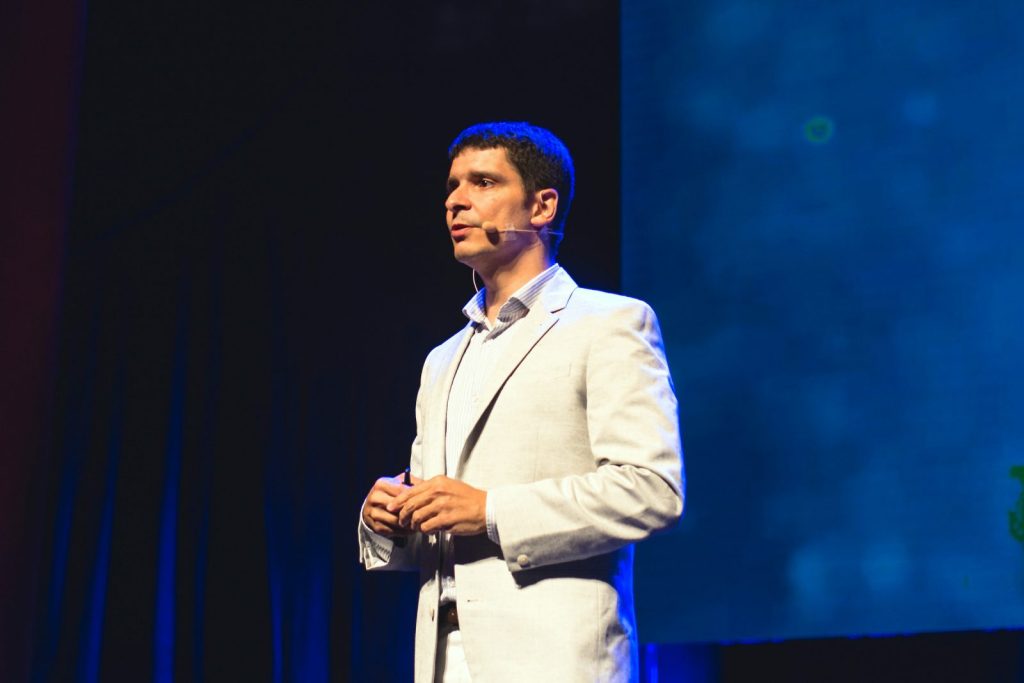This article is a continuation of a previous article introducing the field of political economy and its role in the energy industry. Read it here.
Renato Lima de Oliveira, an Assistant Professor of Management at Asia School of Business, studies the connections between political actors and businesses, focusing on the energy sector. While much of his research centers on the oil and gas industry, he also sees a need for countries to transition to renewable energy sources. He believes both government and traditional energy producers have a part to play in this transition.
“The good thing is that renewable technology has advanced so much that it’s the cheapest alternative,” he notes, adding that recent bids for large-scale solar have been as low as USD $0.03 per kWh. But he also notes that economics alone cannot fuel the transition from a fossil-fuel based economy to one focused on alternative energy. The government also has a responsibility to design cost-effective policies that stimulate the new sector.
He cites Germany as a prime example. The country has a high amount of installed solar capacity despite its relatively low level of sunlight. Political factors are what drove the solar industry to develop the way it has. Alternative energy companies also have resources at their disposal to influence their position in politics, including advocacy and coalition-building.
Coalition–building in particular can take interesting forms. For example, the Trump administration in the U.S. has favored the coal industry, leading to a coalition between shale gas and solar producers. Both parties saw the coal industry as a common, and less favorable, enemy, making for an unlikely alliance. In Malaysia, the government has publicly pledged to increase the share of renewables in the country’s energy mix. Malaysia is home to one of the largest manufacturers of solar panels and receives a high level of sunlight.
Given these factors, it would seem that the solar industry is here to stay. But Renato cautions that without a political coalition, pledges may go unfulfilled and pro-renewable policies may not endure over time. Developing these “nonmarket strategies” is at the heart of his research. He answers questions such as, what kind of government support mechanisms can facilitate innovation? Why does Indonesia have a certain business environment? Why can’t Malaysia escape the middle-income trap? He claims each of these economic questions has a political explanation.
From MIT to Malaysia
When Renato first discovered the striking similarities between Malaysia and his native Brazil, he became intrigued. The two countries had a similar per-capita GDP over time as well as a similar level of oil production. Both had state-owned oil companies that were required to invest in local manufacturing and innovation. These similarities prompted him to include Malaysia in his research on energy policy and economics.
He visited ASB just after the school was founded. At the time, the first class of students had not yet enrolled, so he spent his time as a visiting researcher talking to industry experts and poring over documents in the archival library. After receiving his PhD, Renato entertained multiple job offers, but came to Malaysia because he loved its people and relished the chance to help build a business school from the ground up.
“ASB is a transformative project,” he says, “because the school focuses on teaching that is not just theoretical but has a practical component.” He also resonated with the school’s mission to research and reflect on the challenges of doing business in emerging economies. In particular, he sees the central role of politics as a defining characteristic of emerging economies.
“You cannot do anything in ASEAN without thinking about politics,” he notes. “Malaysia is shaped by the presence of GLCs, Myanmar is affected by its new democracy, and Vietnam’s economy is changing under a one-party regime.” He witnessed this firsthand when advising two students completing their Summer Associate Program.
The students worked at a large bank in Myanmar at which there was little bureaucratic structure in place. At the time, the rate of credit growth was high in the country and the central bank’s policies were changing fast. Renato helped the students put together a report for the company that would allow it to adapt to its changing circumstances. One of the students, Eizaz Azhar, says that he landed his post-MBA job in part because of the report.
Renato believes that helping students think through these political scenarios, both in and outside of the classroom, is a crucial part of his job. “My students come to understand how political actors affect the business environment,” he notes, “as well as how business organizations can change their political reality.”





